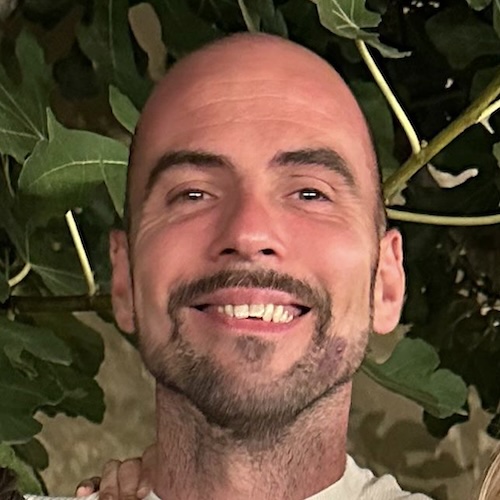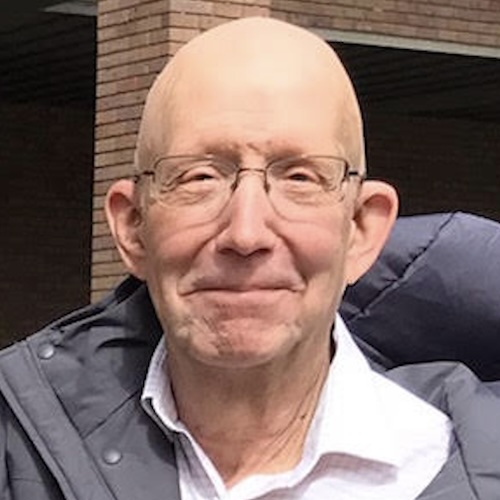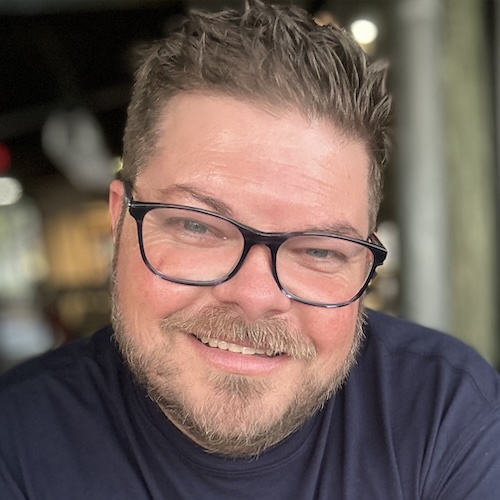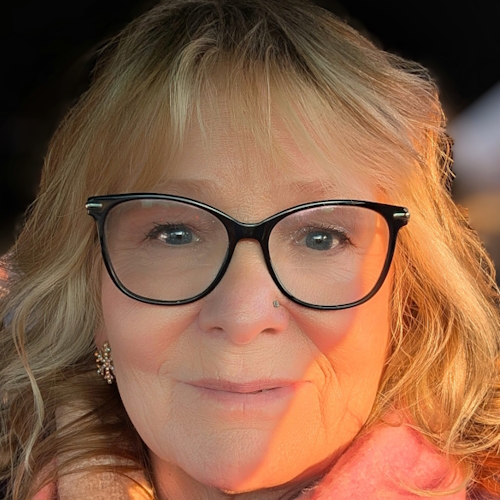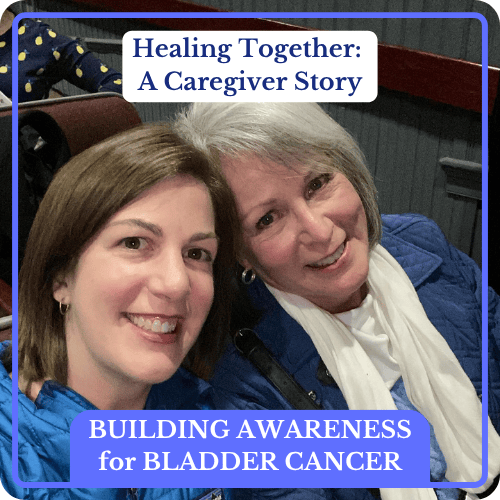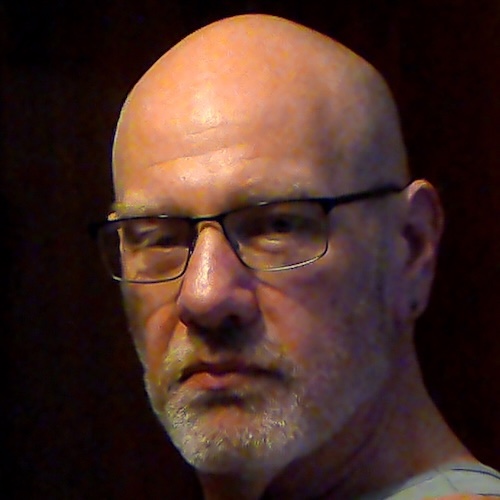Michelle’s Recurrent Stage 1 Bladder Cancer Story
Interviewed by: Taylor Scheib
Edited by: Katrina Villareal
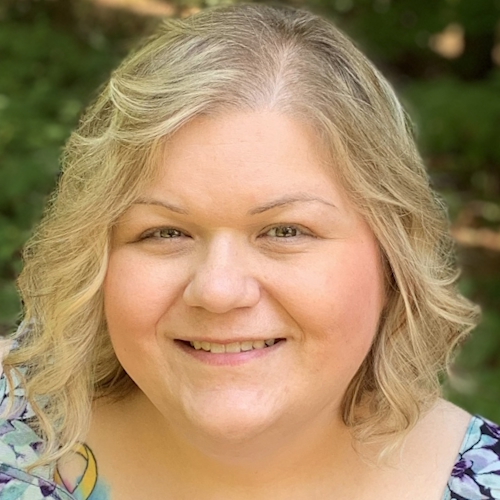
Michelle’s experience with recurrent stage 1 bladder cancer started with intermittent blood in her urine, which led to multiple urgent care visits, where she was initially misdiagnosed, and eventually a diagnosis of papillary urothelial carcinoma. Upon diagnosis, she underwent TURBT surgery to remove the tumor and then chemotherapy.
Despite multiple rounds of chemotherapy, Michelle’s cancer recurs within three to six months after stopping treatment. Her doctor suggests ongoing monthly maintenance chemotherapy, but she negotiates for less frequent sessions due to the harsh side effects. She became vigilant about recognizing symptoms of recurrence, helping her manage the chronic nature of her cancer.
Facing the possibility of losing her bladder, she expresses a preference for an Indiana pouch, influenced by her friend’s experience and her desire for a better quality of life. She has already undergone surgery to improve her chances of adapting to the Indiana pouch, demonstrating her proactive approach to managing her health.
Michelle emphasizes the importance of self-advocacy in medical care, seeking multiple opinions, and making informed decisions. She acknowledges the emotional toll of living with cancer and stresses the importance of mental health care and self-care.
- Name: Michelle R.
- Age at Diagnosis:
- 43
- Diagnosis:
- Bladder Cancer
- Staging:
- Stage 1
- Symptoms:
- Irregular occurrences of seeing streaks of blood in urine
- Specific type of pain when bladder is full
- Unexplained weight loss
- Urinary urgency
- Malaise
- Fatigue
- Treatments:
- Chemotherapy: gemcitabine
- Surgery: transurethral resection of bladder tumor (TURBT)
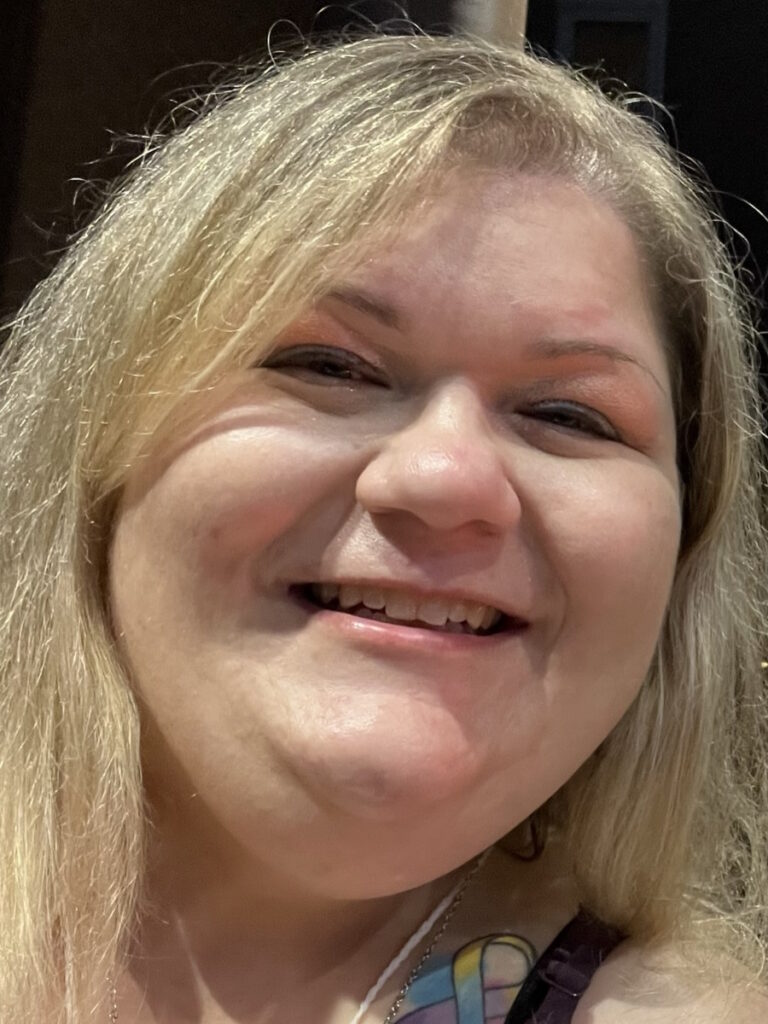

Thank you to Johnson & Johnson for its support of our patient education program! The Patient Story retains full editorial control over all content.
This interview has been edited for clarity and length. This is not medical advice. Please consult with your healthcare provider for treatment decisions.
I had been experiencing some streaks of blood in my urine… It was very random and not consistent at all.
Introduction
I live near Atlanta, Georgia. I’m a mother to an adult son and an auntie to my nieces and nephews. I have two brothers and a sister. I’m a genetic genealogist. If I’m not working my full-time job, I’m working my side business, Bless Your Vibes LLC.
I have recurrent stage 1 non-muscle-invasive bladder cancer (NMIBC). I’ve had nine recurrences, countless surgeries, and chemotherapy. As long as I catch it before it invades the muscle, I’ve been told I can deal with this for the rest of my life.
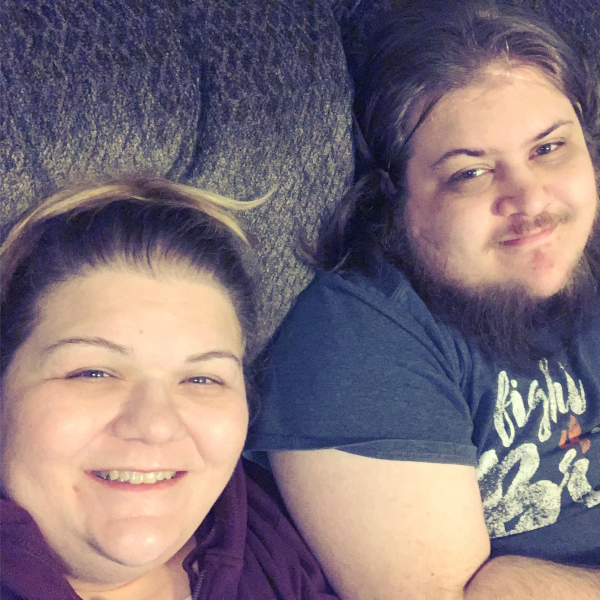
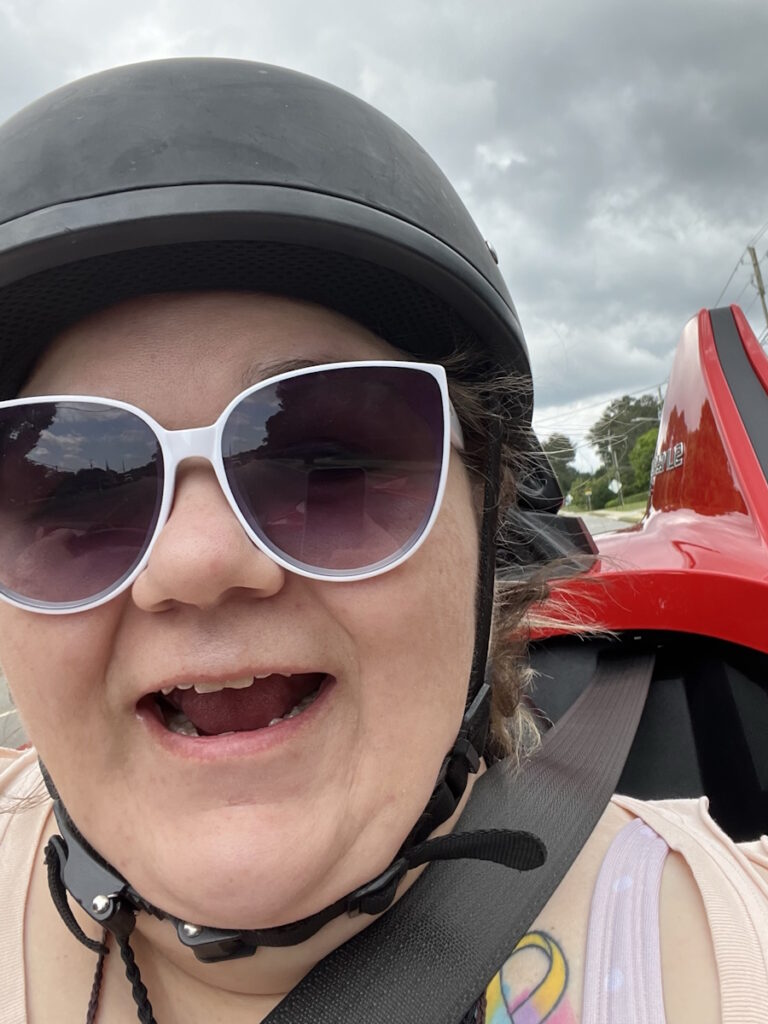
Pre-diagnosis
Initial Symptoms
I had been experiencing some streaks of blood in my urine. It would happen for a day or two and then nothing for a month, and then it would happen again. It was very random and not consistent at all. I already had a hysterectomy several years prior, so I knew it wasn’t related to that. I didn’t have any pain nor symptoms of a urinary tract infection, so I immediately thought about kidney stones.
Going to Urgent Care
When I went to urgent care, they did a culture and said, “You don’t have any infection, so it’s probably kidney stones. We’re going to give you antibiotics and send you on your way.” I went to urgent care a total of four times from June 2017 to February 2018.
She said, “I want you to demand to see a urologist. You’ve been experiencing this for quite some time. Tell them painless bleeding.’
The last time, I did a televisit. I knew they were going to give me antibiotics because it was the same old story, so I planned to call them during my lunch break. The doctor I spoke with during my televisit was more thorough than any other doctor I’ve ever had in my life.
She asked me questions and didn’t allude to any infection or kidney stones. She said, “I want you to demand to see a urologist. You’ve been experiencing this for quite some time. Tell them painless bleeding. Don’t say ‘blood without pain.’” She stressed that to me for whatever reason.
Seeing a Urologist
The urologist still didn’t indicate anything. They said, “We’ll try to figure out what’s going on.” I had a CT scan and some urine tests, but that was about it.
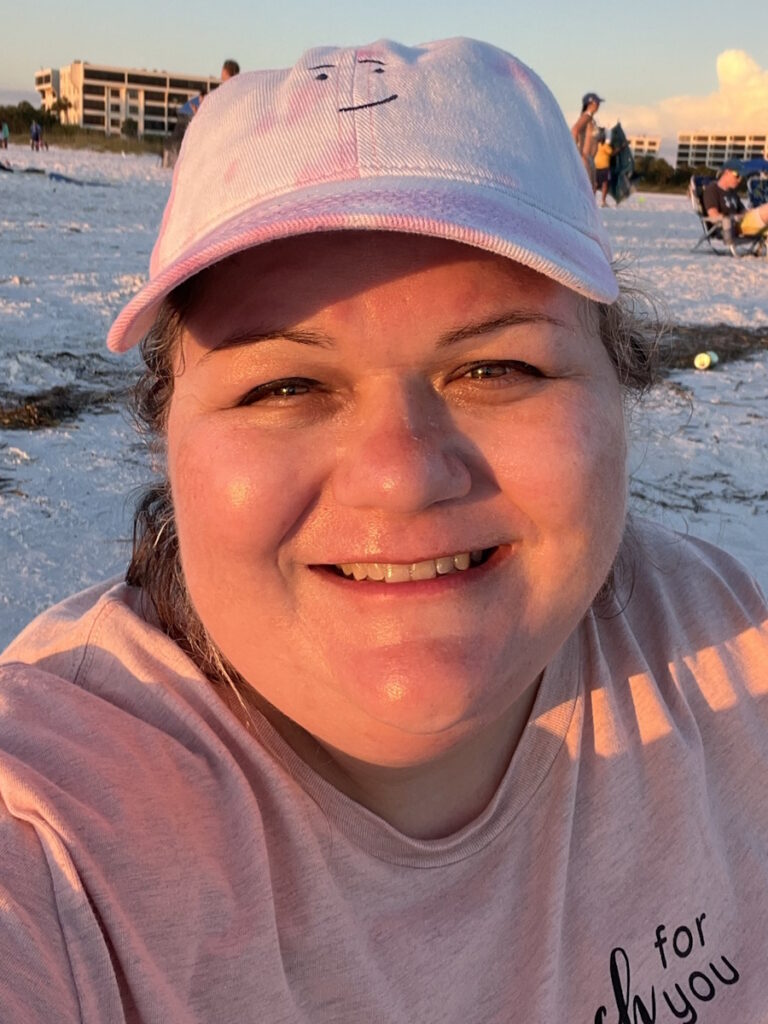
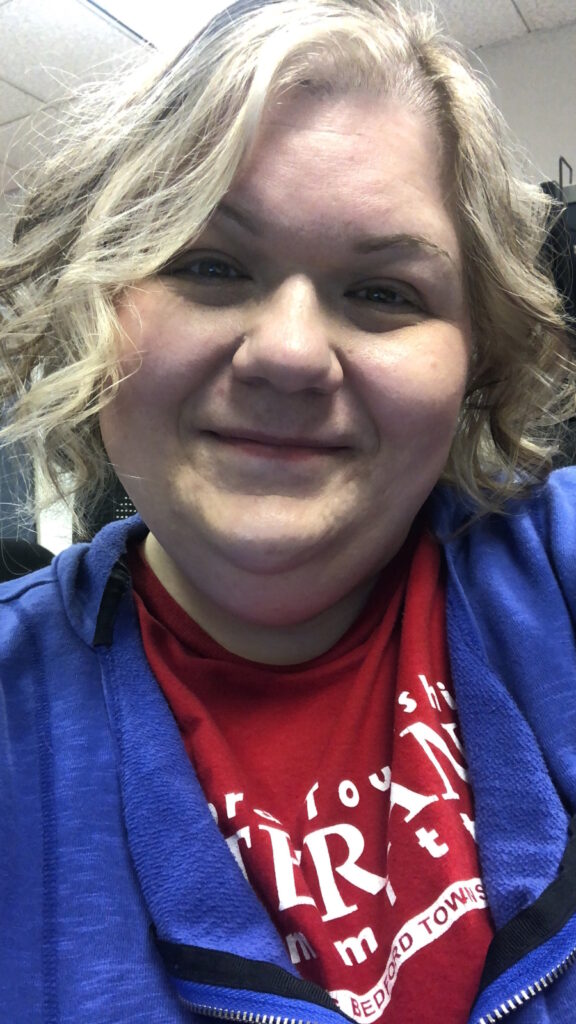
Diagnosis
Getting the Diagnosis
The urine test results came back through my patient portal and said I was positive for papillary urothelial carcinoma. I knew what carcinoma was, but I didn’t know what papillary urothelial meant. I panicked. It was Friday afternoon and everybody’s gone. The only person I told was my boss at work because I had to leave early.
First thing on Monday morning, I called the office and left a message. They called back and said, “We can’t tell you anything. You need to come in to see the doctor.” I couldn’t go in until later that week, so I had to sit with it for a whole week.
When I went in, the doctor was so matter-of-fact and cold. He started talking about treatment. I said, “Stop. Do I have cancer?” He looked at me like I should already know. I was numb. He said, “Based on the CT scan, it looks like there’s a large mass. Normally, we would go in with a scope and then proceed with surgery. But since we know that it’s cancer, can we bypass the scope and go into surgery?” I said yes because I wanted this out of me, so he scheduled it for two weeks after.
I had one friend… She wasn’t that close of a friend but for her to drop what she’s doing to help me, stay with me, and bring me home meant the world to me.
Treatment
Discussing the Treatment Plan
With bladder cancer, you have high-grade or low-grade, muscle-invasive or non-muscle-invasive. My doctor pulled out a treatment chart and it showed everything. It was pretty clear-cut. It showed the schedule of treatment, which starts from removal or transurethral removal of bladder tumor (TURBT), and then it goes through the surgeries and the types of chemotherapy.
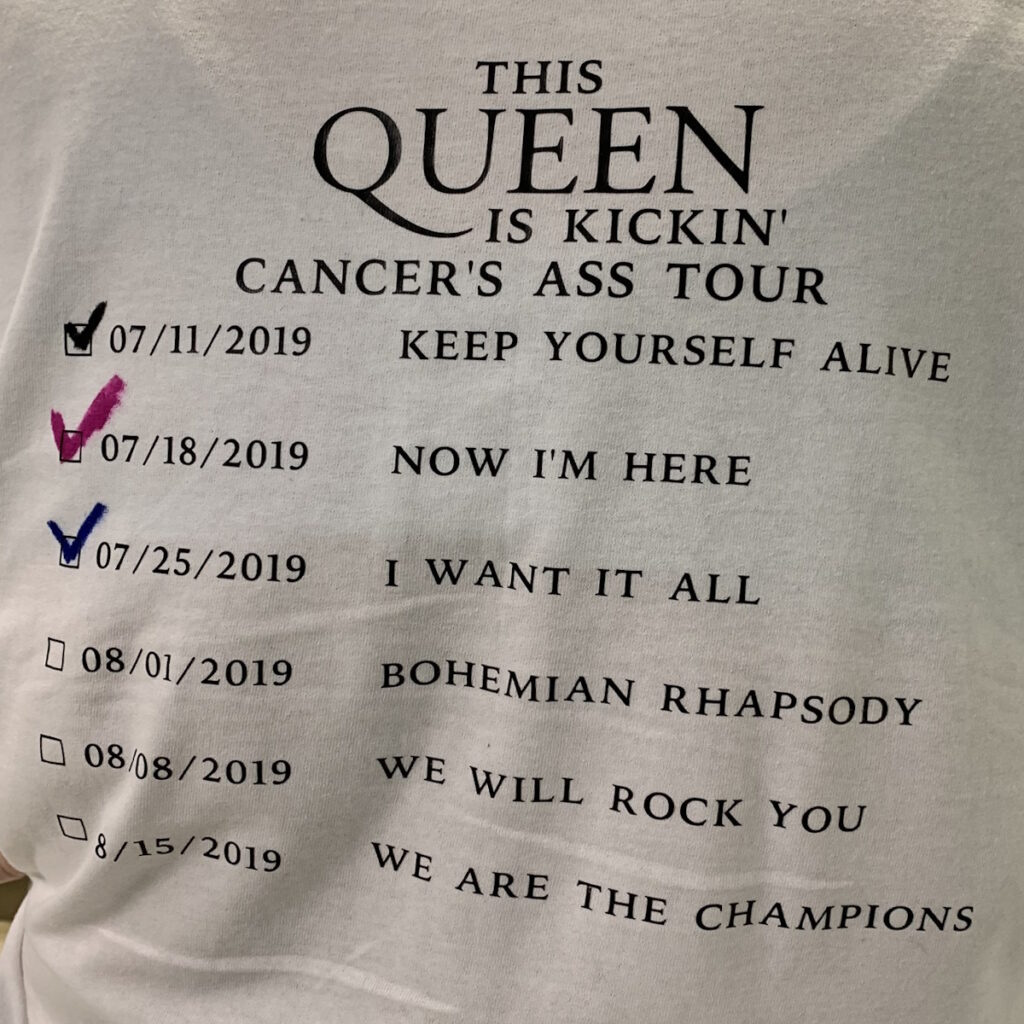
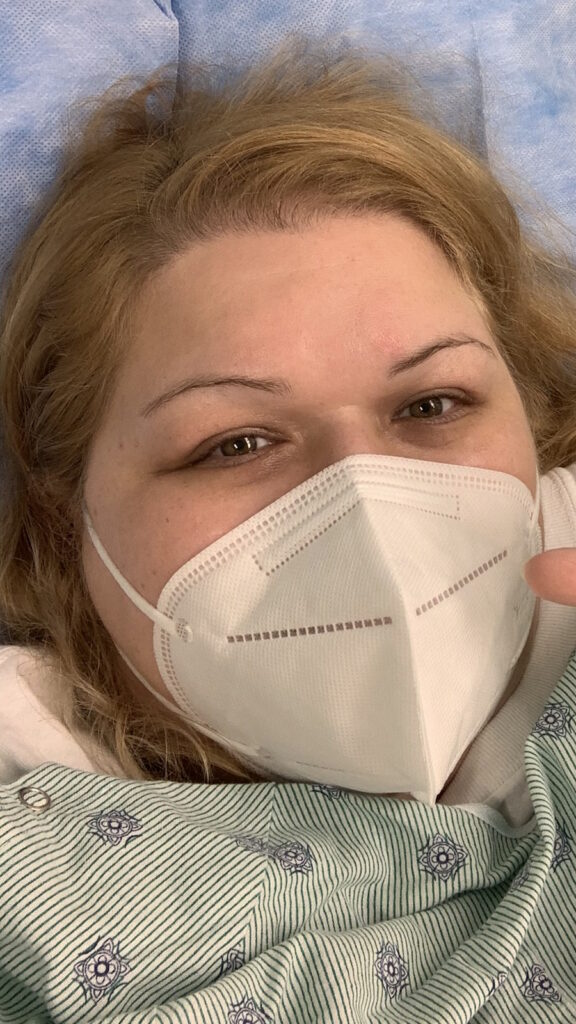
Preparing for Surgery
I remember trying to prepare myself. I was freaking out because up until the night before, I had no ride to my surgery. My son didn’t have his license yet and all of my friends worked. I didn’t have any family to help. I literally had no one. I started calling people that I casually knew and nobody stepped up.
Then I had one friend who I called and I was telling her about it when she said, “Why didn’t you ask me?” I didn’t even think about it because she’s disabled and she turned out to be the one who would step up. She wasn’t that close of a friend but for her to drop what she’s doing to help me, stay with me, and bring me home meant the world to me. It humbled me. I didn’t even know then all the friendships that I was about to lose over this, but from back home, she’s the only friend I have left. I’ve lost all of them.
I went into surgery and at the time, I felt like I had a lot of people depending on me, so I told the doctor, “I’m not just another patient. Treat me well. Do me right because I have a lot of people who depend on me.” I felt he was offended by that because he said, “I treat all my patients the same.” He was very dry.
I asked, “What’s the best-case and worst-case scenario?” He said, “Best-case scenario is I get it all, you go home today, and you rest. Worst-case scenario is you wake up and have a bladder bag.” He told me this right before going in and I was in complete shock. I couldn’t do anything else but pray.
I had a follow-up after surgery and there was another growth. It was the first time I got to see it inside of me.
Surgery
After surgery, my friend was the first person to greet me coming out. She was in the recovery room and as I was waking up, I felt that he got it all and I was going home. I believed it in my head. After I got more coherent, I asked the nurse, “Did he get it all?” And she said yes.
I went home to recover, took the next day off, and went back to work the following day. It was like I had cancer and then I didn’t have cancer in that short time. I didn’t know at the time that it was going to happen nine more times over 6 ½ years.
One of the first things this doctor told me was, “I have patients who have been coming to me for 20 years. I go in and get it out, and they go about their way for 20 years.” At first, I was upset that he said that, but later, I was glad because that prepared me. He indicated that it was going to be normal to keep coming back.
Not every case is chronic, but I like to know things because I like to be prepared. It helped me put it into my head that I’m going to have to deal with this. On one hand, it helps me. But on the other hand, I don’t feel like I’ll ever have that winning moment. It’s going to be a lifetime thing to deal with.
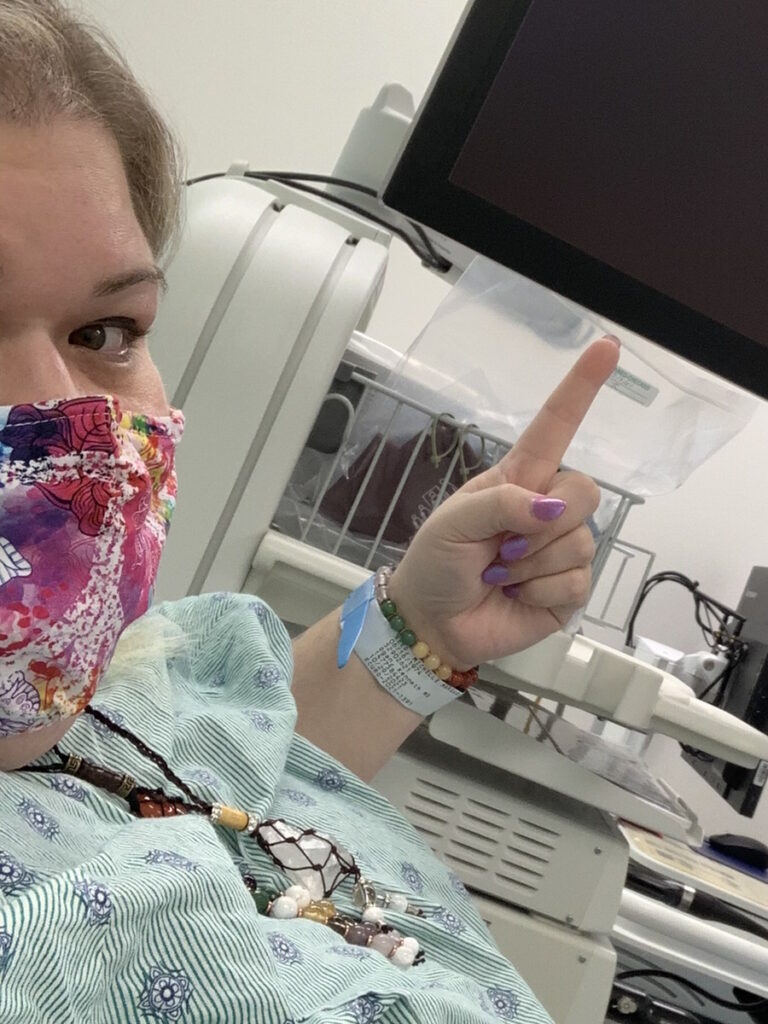
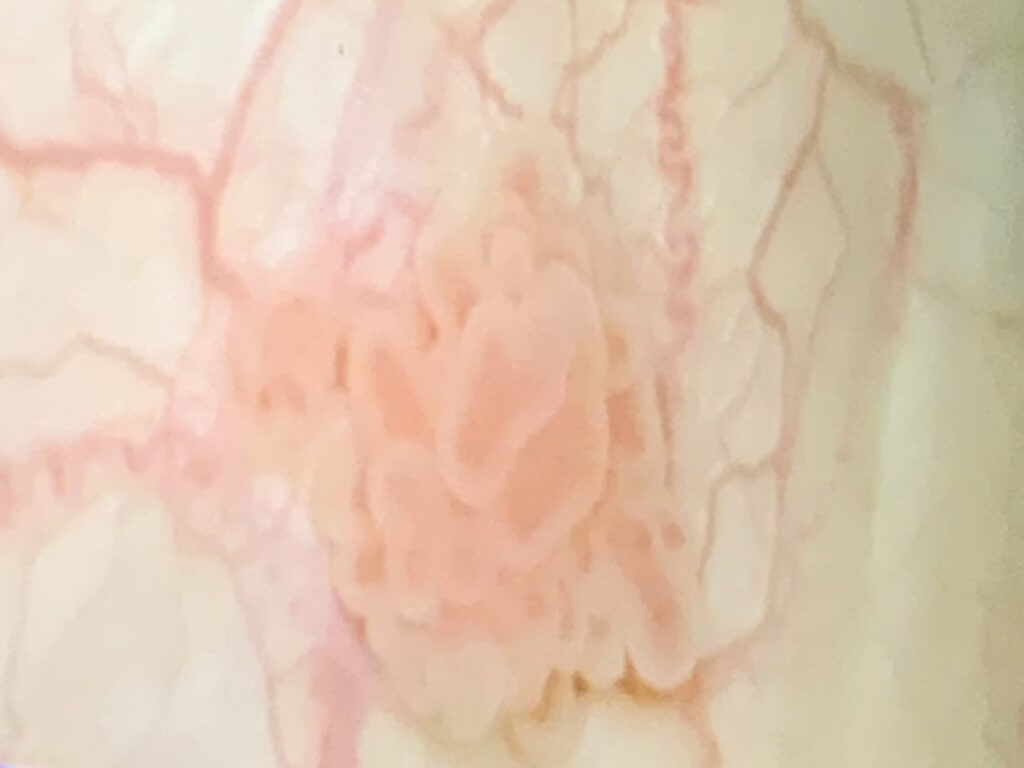
Recurrence
I had a follow-up after surgery and there was another growth. It was the first time I got to see it inside of me. It looked like a succulent flower because it was so tiny and had little shoots. I’m lying there looking at the screen, thinking, “How could something so beautiful be so deadly?” Then he said, “We can take care of this right now.”
I asked him, “What does this entail?” He said, “We pluck it off.” Then through the screen, I saw this little grabber thing come through and he plucks it. It was very surreal. You go from cancer to no cancer because once that’s gone, you have no evidence of disease.
If I have to do a cystoscopy or a procedure, that takes priority because in order to keep my bladder, I have to stay on top of everything and not wait.
Moving to Atlanta
I was moving from Ohio to Atlanta, so I asked him what I needed to do. He said, “Come see me one more time before you go.” I did that and I was clear, so I was okay.
I started searching for the top urologists, top oncologists, and the hospital networks in the area. I did a lot of research and called some of the hospitals, which included Emory because they were in my insurance network. I asked, “If you had a serious problem with your bladder and you needed a urologist, who would you go to?” They told me about this doctor and as soon as I connected with the office, it was so different.
This doctor is a urologic oncologist and supposedly the best in the network. I explained my situation and gave my brother’s address since I didn’t have my new address yet. They emailed me papers and everything. There was such an urgency to be seen and that made me feel very comfortable and that I would be taken care of.
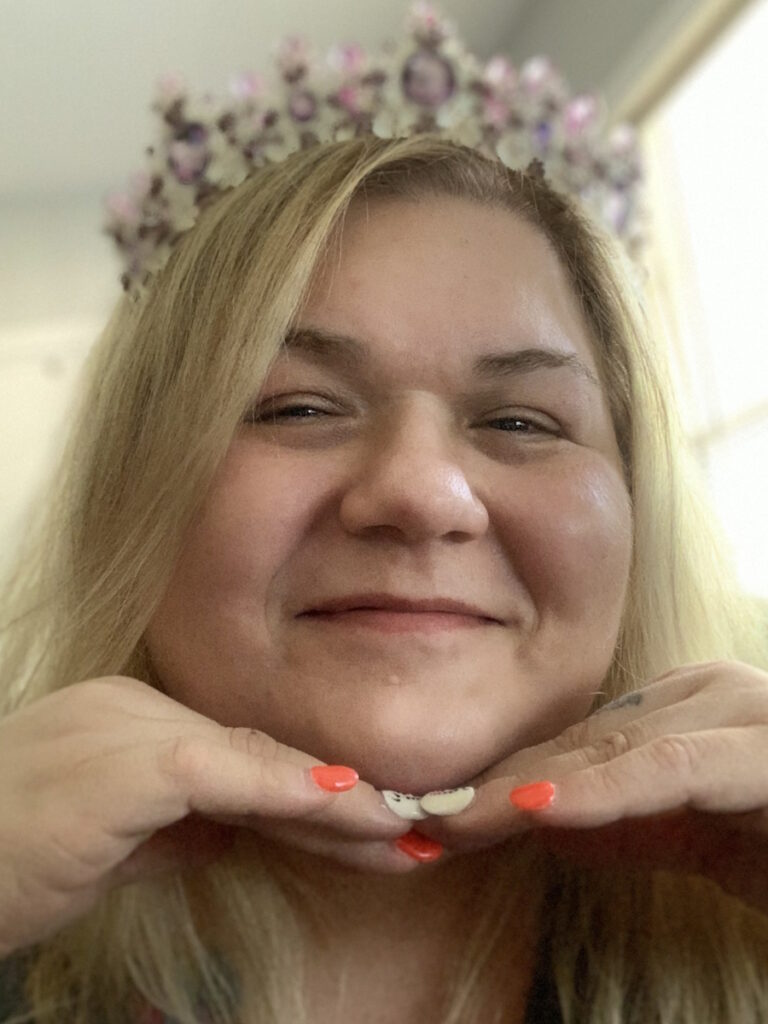
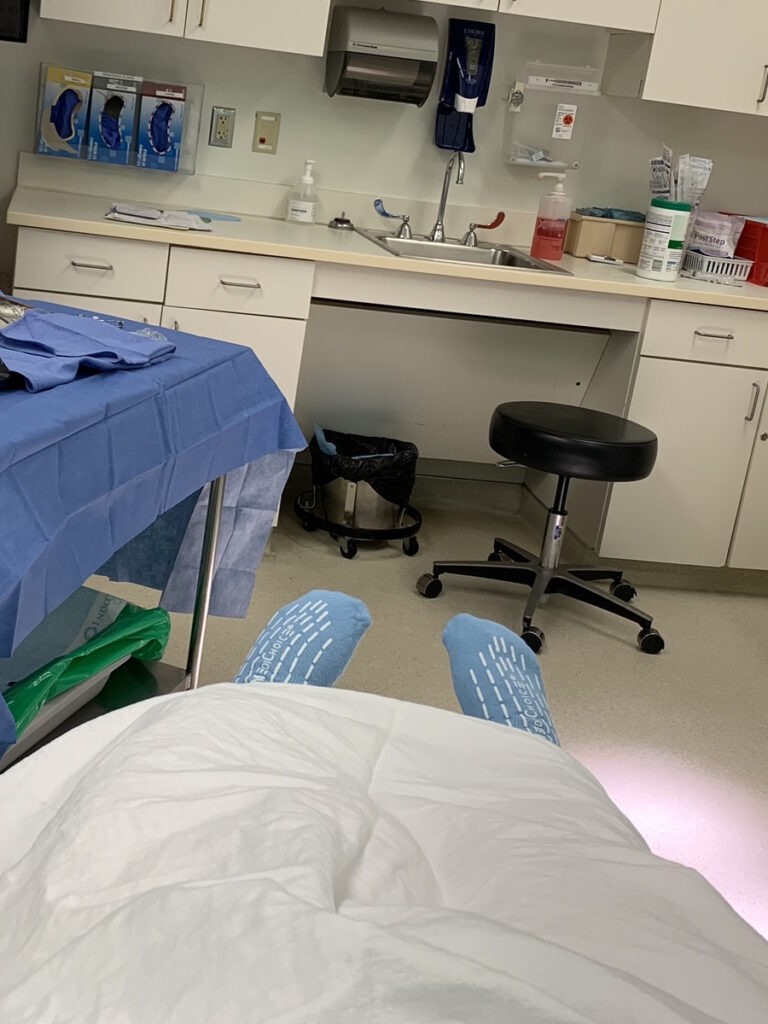
When I went, they said, “We’re not even going to have a consultation. We’re going right into cystoscopy. I want to see what’s going on there.” I’m glad they did because that was my fourth growth and it had taken off. It was very large and from the pathology report, it was high-grade.
After that scope, they said, “We’re going to do the surgery and we’re going to do your chemo,” so I did that.
During my follow-up, I didn’t see the doctor, but I saw someone else from his team. I had been taking cues from my first doctor that it wasn’t a big deal. She was the first one who looked me in the face and said, “Do not put this off because you can die from this,” and that was the first time anybody said that I could actually die from this.
Up until then, it was very casual. From that point on, I took everything very seriously. If I have to do a cystoscopy or a procedure, that takes priority because in order to keep my bladder, I have to stay on top of everything and not wait.
There are specific symptoms that I now recognize when I have active cancer.
Being Aware of Symptoms of Recurrence
I’ve had this nine times now, so I’ve paid attention to my body and my symptoms, and I started recognizing patterns. When I have active growth, there is a very specific pain that I feel in the morning when my bladder is full. Once I empty it, the pain goes away. When I feel that, I know I have a growth.
I’m a plus-sized person. I’m fairly large. But before I was diagnosed, I lost a lot of weight. I lost 60 lbs and that was one of my other symptoms before I was actually diagnosed. I had unexplained weight loss and I had been trying to lose weight my whole life.
Then I have a lot of sense of urgency to go to the bathroom, like when you have a UTI. I can’t wait for too long because the fuller my bladder, the more it hurts. Then I have a general feeling of unwell and being tired a lot. There are specific symptoms that I now recognize when I have active cancer.
One time, I was having bad pain in the morning. I had a cystoscopy not even a month prior and he said, “It’s probably because you’re still healing.” I said, “No, something’s going on.” He got me in and sure enough, it was another growth. This doctor trusts that I know my body and he’s fully on my team.
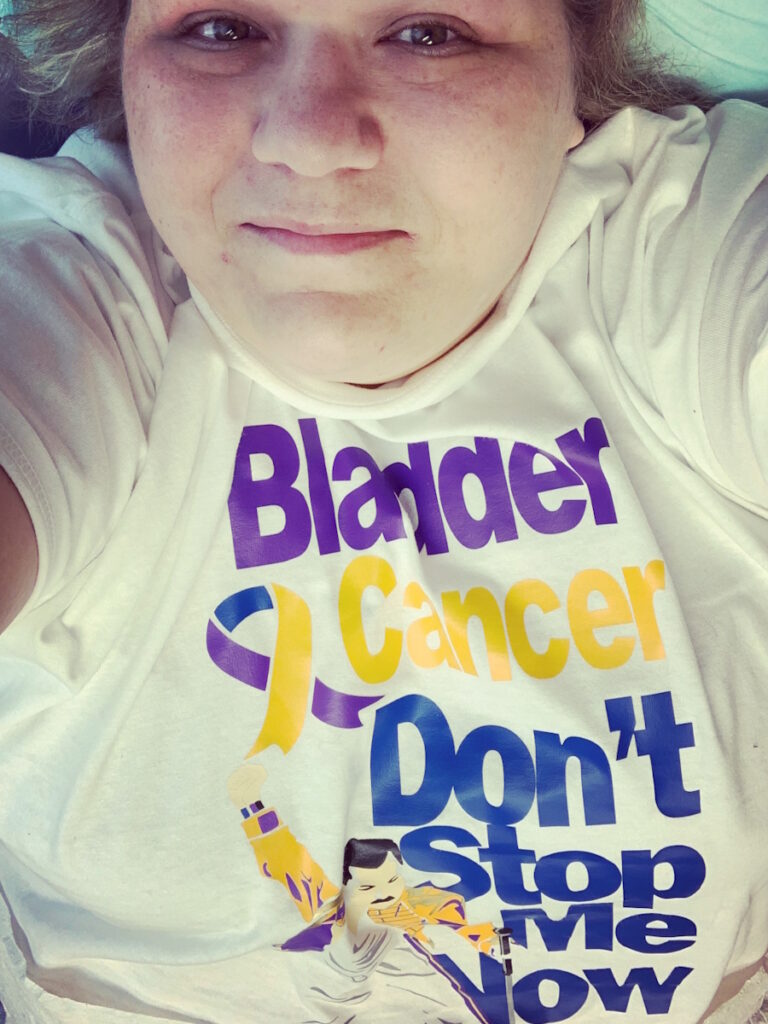
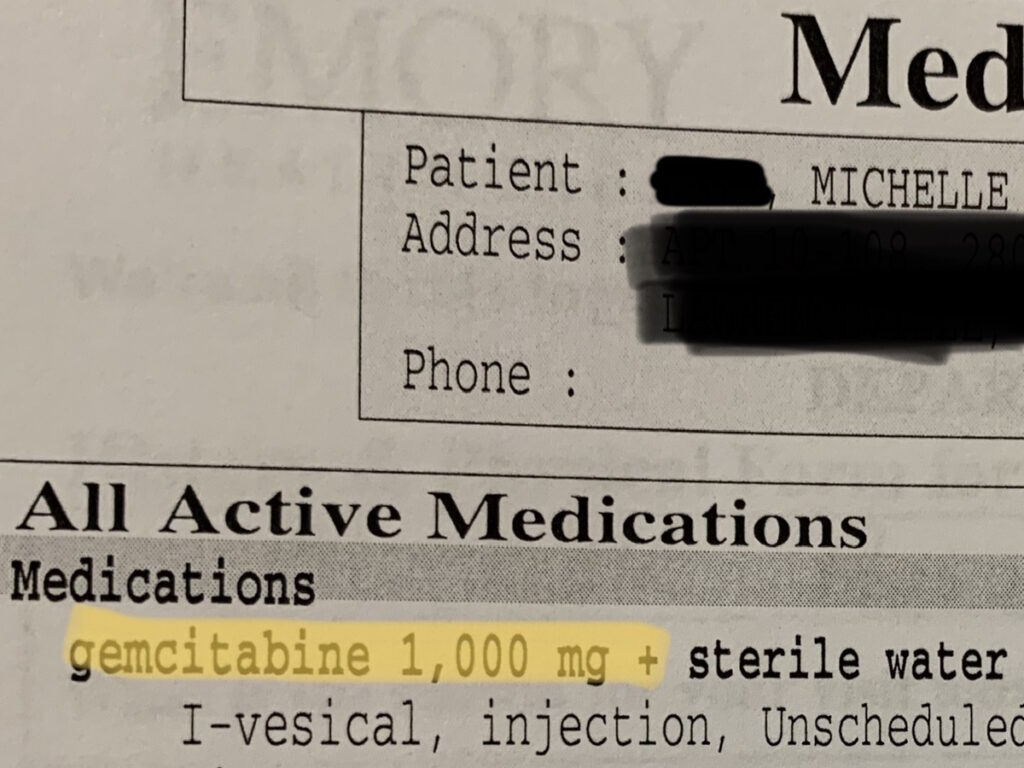
Maintenance Chemotherapy
For the last recurrence, we know that chemo worked. I got chemo for a whole year and didn’t have any growth, but when I stopped, I had another growth within three to six months, so I had to have another surgery and chemo.
I told him that it seems my growths occur between the three- and six-month mark, so he wants to introduce another chemo to mix with the original one I was taking and do monthly maintenance chemo probably for the rest of my life. I’m not down for that, so I said, “That’s hard on me. What if we go every two or three months?” That’s not even what the board recommends, but he’s willing to consider it.
He said I could stop and we’ll see how I do. In six months, it came back, so I’m going to be on chemo for the rest of my life.
Side Effects of Chemotherapy
The chemotherapy drugs are all different. I get nauseous, but I don’t get sick. I have a little thinning of my hair, but I don’t go bald. I feel overall icky and tired. I go through hot and cold flashes, low-grade fevers, and night sweats. Those last probably about five days before I start to feel a little bit better. But when I went for the whole year, the longer I was doing it, the worse I felt every month.
It started like I was having aphasia or problems with recalling certain words. My memory wasn’t as good. I was having trouble concentrating and trying to process things. It was more complicated. I still have that problem where I trip on my words sometimes. It got progressively worse the longer I was doing chemo.
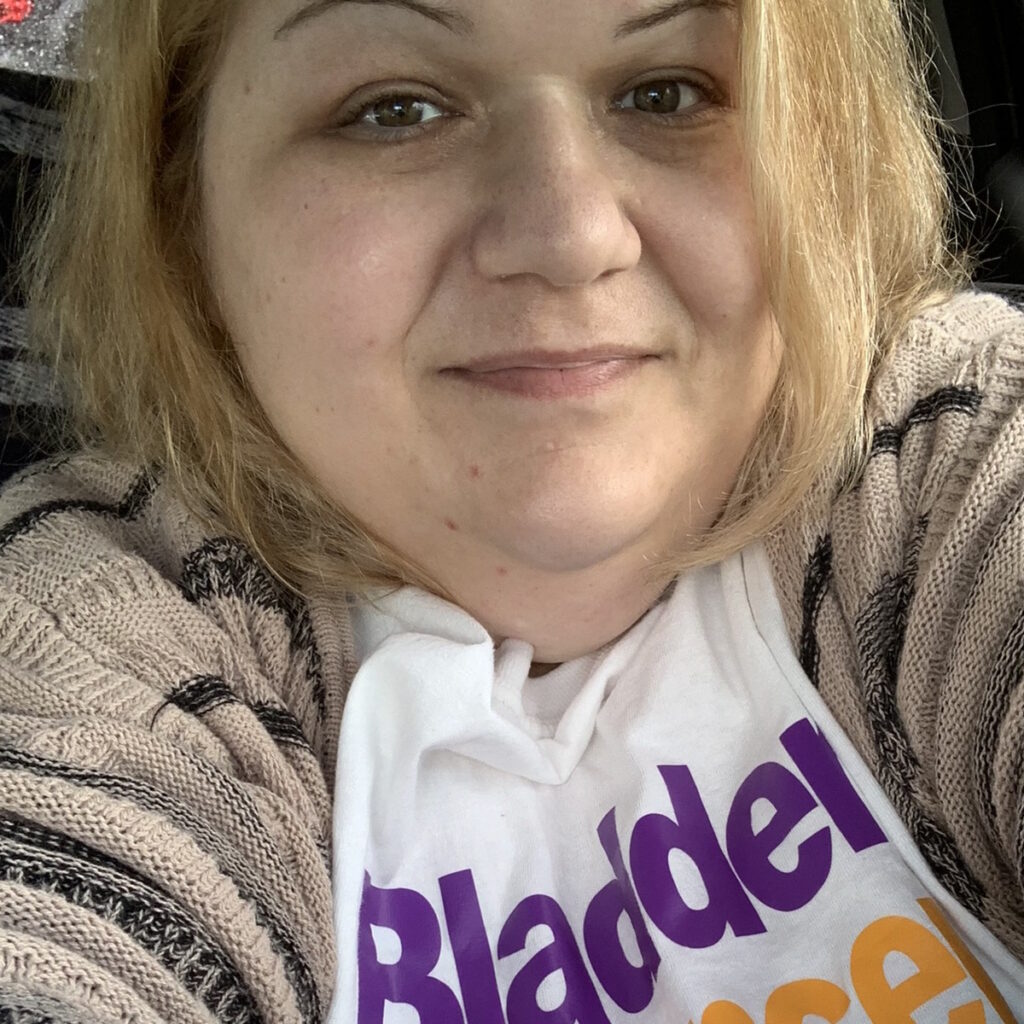
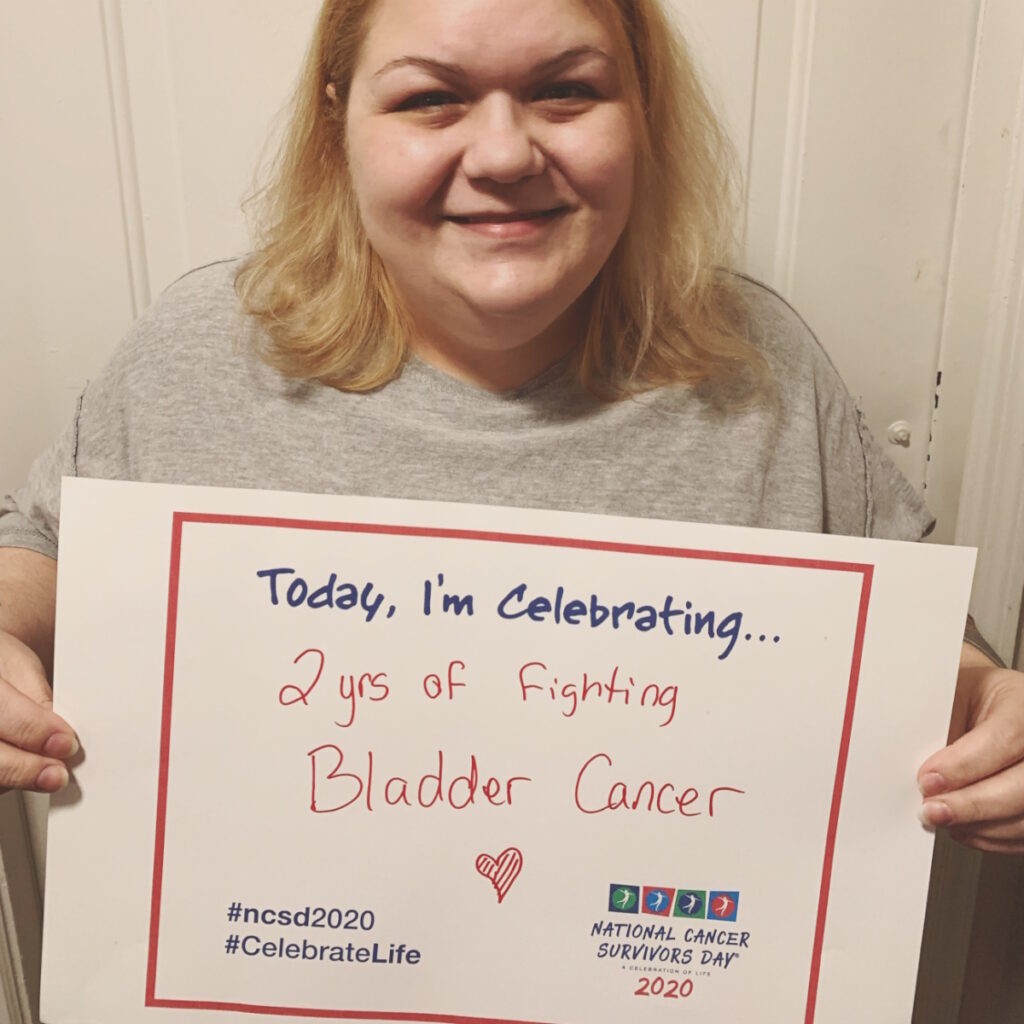
Taking a Chemo Break
I was supposed to do it until the end of the year, but I asked him, “Can I take a break for a month?” Since I had the six-week course before the monthly sessions, he said I could stop and we’ll see how I do. In six months, it came back, so I’m going to be on chemo for the rest of my life.
It’s going to be a cat and mouse game, and the end result is a ticking time bomb. I’m going to do whatever I can to avoid losing my bladder and as long as I can tolerate the chemo. If it gets to the point where I can no longer take it, then I’ll probably have my bladder removed. There aren’t very many options for that.
Even if it meant I was going to lose the battle to not lose my bladder and choose quality of life over quantity of life, I made peace with that.
Facing the Possibility of Losing Her Bladder
There’s only one option that I would like. My best friend had urethral cancer, a rare form of it, and she got an Indiana pouch and that to me is the most tolerable. I don’t want to live with a bladder bag. It’s a decision I made before I met her. The only options I knew of were a neobladder or ileostomy bag, and I didn’t like either of those options because if the neobladder doesn’t work, then all you have is the bag.
I’m older and my child is grown and independent. I’ve suffered a variety of things throughout my life. I’m a chronic pain patient and with where I’m at in my life, I didn’t want to suffer, so I made the decision. Even if it meant I was going to lose the battle to not lose my bladder and choose quality of life over quantity of life, I made peace with that, and that was hard for other people.
I didn’t really talk about it, but I mentioned to people close to me, “Spend time with me now.” I didn’t come right out and say it, but I would drop hints. Then I met my friend and she showed me that and for the first time, I actually had hope that I could live with this little pouch and do the catheter. I could deal with that. Now that’s where I’m at. If I have to lose my bladder, I want the Indiana pouch.
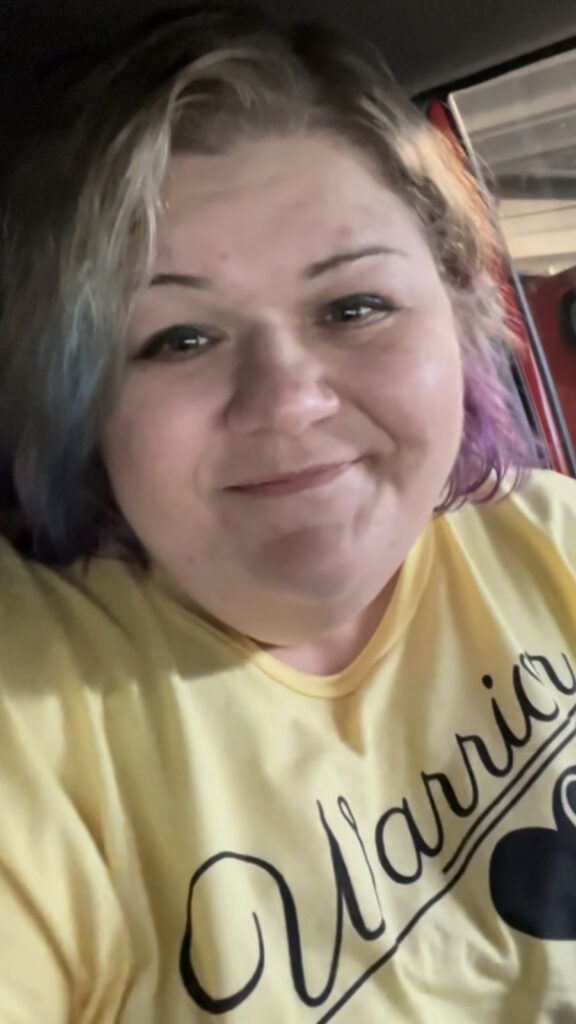
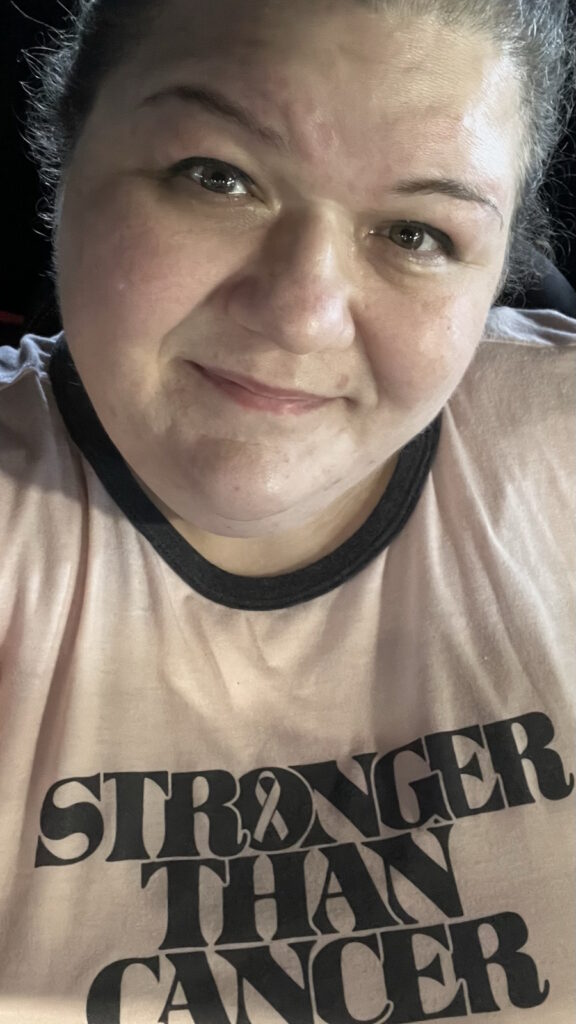
When I was first diagnosed, I was fortunate to get involved with a cancer support center in my old town. I started going to support groups and would see there was only one other person with bladder cancer and he had a bag. He was pretty matter of fact about it and he was happy. He didn’t go through what I did, but his was found at a later stage.
You could tell which ones had a good support system and which ones didn’t. The ones who had a good support system wanted to fight and they fought until the very end.
At the time, I thought I had a good support system, so I was ready to fight. There was a woman who came in who had been diagnosed with stage 4 and it looked like there was no hope for her, but she had such a good support system. Her decision was to not do any treatment. She was going to live the rest of her days.
I remember that meeting because that’s where we got into quality versus quantity. She said, “Why would I prolong my life with the extra time I have being miserable, rather than have a shorter life and be absolutely happy and at peace with it?” That hit me so deeply because I wasn’t even nowhere near where she was as far as stage, but it put in my head that if I ever get to that point, that’s what I would do. It allowed me to process those choices and come to terms with it.
I knew people wouldn’t understand that. Even to this day, when I talk about it, people would say, “Why would you even think like that?” And these are people with cancer. You’re not me. You’re not going through what I do.
Everybody’s days are limited, whether you have cancer or not. We only have one life, so you have to do what you can in between the dashes.
Shared Treatment Decision-Making
My doctor is still pretty dry, but I’ve grown to appreciate him. I had a different surgery a few years ago and prior to that surgery, I let him know right away, “I’ll do whatever I need to do to keep my bladder, but if it comes down to losing my bladder, I will pass. I want you to know that’s where I’m at.” He respected that and said, “I’ll do whatever you want.” I appreciated that for a variety of reasons. He must have written it in my file, so he knows that when I come in, we have the surgery and then chemo. It’s become routine now.
When I had the high-grade recurrence, it got to the point where we weren’t sure and I was scared. I had met my friend by then and brought it up to him. I said, “Can I do the Indiana pouch if I have to lose my bladder?” He said, “Let me see your abdomen.” At the time, I had a B belly, so my waist dipped in and right where the crease was is where the stoma would be. I asked, “How would that work?” He said, “It probably wouldn’t.”
I had this discussion with him. My concern was if I had a bladder bag, every time I moved, bent over, or sat, it would fold over on itself, so it would pinch off the flow. The stickers for the bag wouldn’t stick. I would then have a higher risk for infection and leaks. It solidified why I wasn’t going to live with a bladder bag.
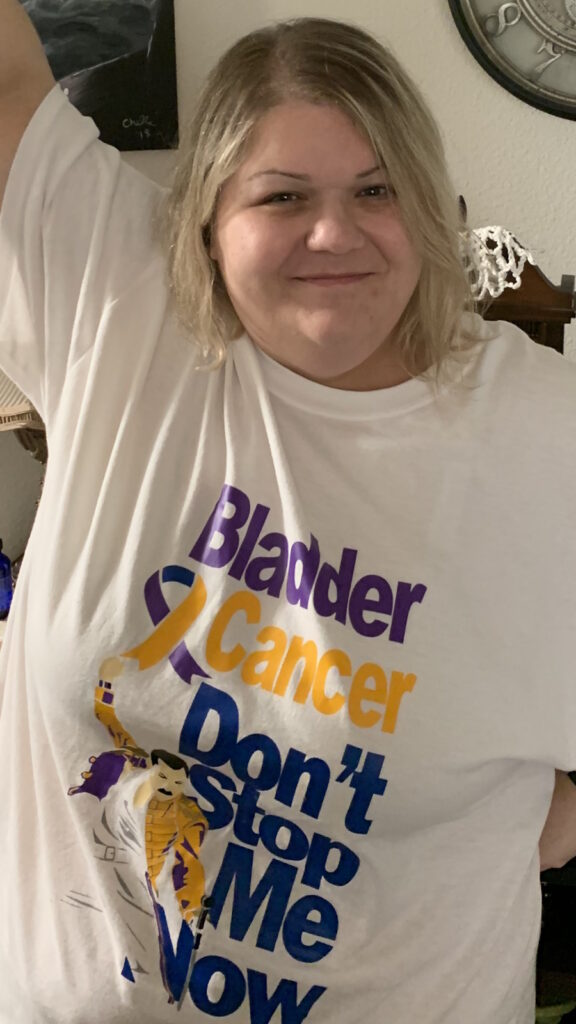
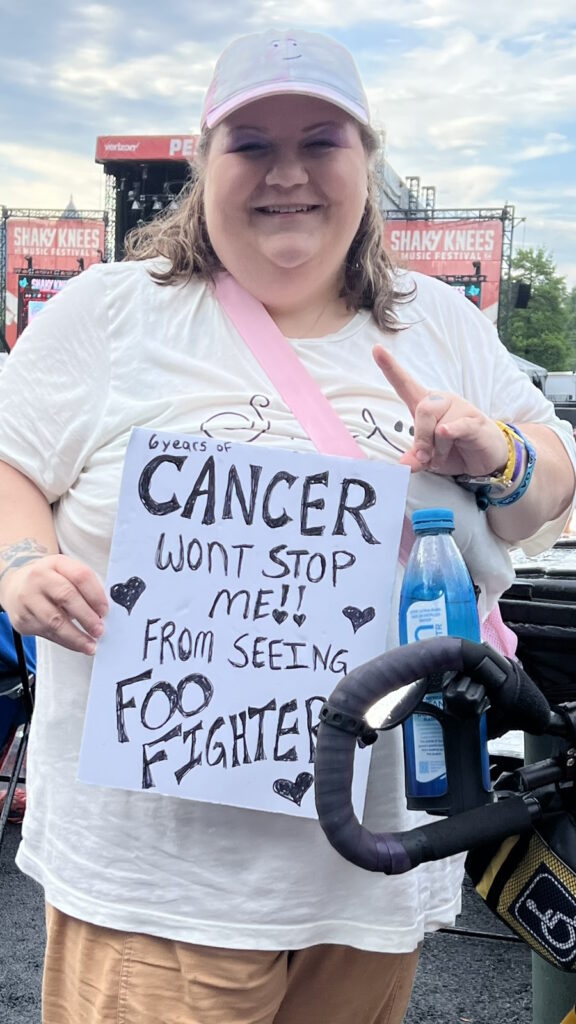
I thought about it and said, “What if I got a tummy tuck to smooth that out?” I’m a bariatric patient too and I had lost some weight. He felt around and said, “If you could get this smoother, I think you would have a better chance,” so I started on that journey to get that done.
I had a panniculectomy, so now I have a big round D belly and I’m comfortable with the fact that if I had an ileostomy bag, I wouldn’t crease anywhere. But then I met my friend and that made me feel even better. Now that I’ve had the surgery, I could live with that. It was important that I had that discussion with my doctor because if he blew me off, then I wouldn’t have made that decision.
At my last visit, I brought up that I’m coming up to seven years. He said, “If you want to remove your bladder, we can do that, but I don’t think you’re there yet. This is all superficial, but I understand that if the chemo’s getting to be too much and doing all this is too much, we can do that. But I remember what your decision was initially.” Whatever I decide, he’s comfortable with it.
Where we left off was, I have to let him know whether we’re going to introduce this other chemo and try a few rounds every three months to see if that keeps it away. I can live with that and that’ll buy me a little bit more time. Everybody’s days are limited, whether you have cancer or not. We only have one life, so you have to do what you can in between the dashes.
Importance of Self-Advocacy
Self-advocacy is absolutely critical. I talk about it on my social media and I have a lot of women sending me messages, not very many men, but I tell them that this doesn’t have to be a death sentence. It’s a health challenge, especially if you have the type that I have.
You have to advocate for yourself and understand what’s going on with you. Ask your doctor. Don’t feel like you’re putting him off. If he or she’s brushing you off, find another doctor. Get those answers and make those decisions.
Don’t let any doctor gaslight you. I’m a big proponent of that. I don’t think I would’ve been like this if it wasn’t for all the other experiences I’ve gone through in my life. It brought me to this point where I can advocate for myself and others.
A lot of people I talk to don’t know how to advocate for themselves. I’ve seen five oncologists, two different ones in the same week. There’s nothing out there that says you can’t go to another doctor. You have to fight for yourself and speak up for yourself.
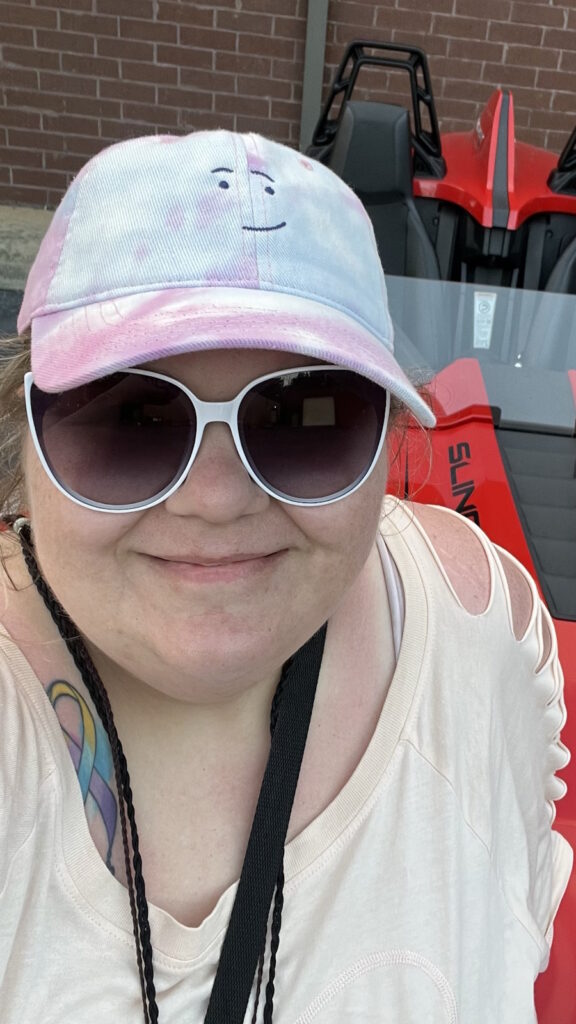
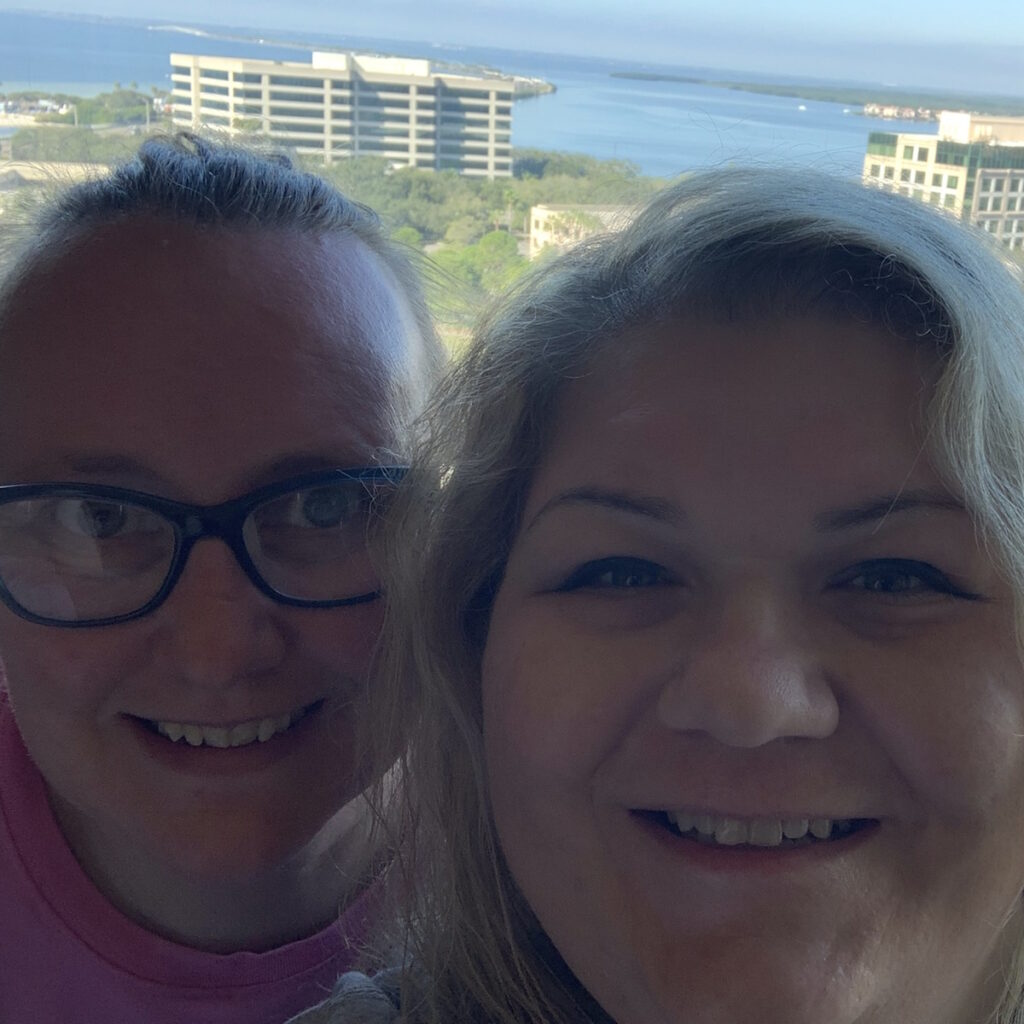
Handling the Emotional Toll
I haven’t carried myself with grace. I’ve spent a lot of time crying and being angry at everything. Oddly, one thing I never felt was, “Why me? Why did this happen to me?” I don’t know why. I can’t tell you why, but I’ve not handled it very well.
There have been a lot of times that I get depressed. I shut down. I get gripe-y with people. I withdraw. I’ve always been a quiet person. Everybody says you have to remain positive and be positive. In a lot of aspects, that’s true, but you also have to be a realist and allow yourself to feel these feelings to get through them.
My counselor said, ‘Before cancer or any major health issue, you experience a grieving process over the life that you had before the diagnosis.’
Some things that I do that help me is seek mental health care. When I was first diagnosed, I was seeing a counselor and was on anxiety medication. When I moved, I didn’t need those anymore because back then, I had other situations I was dealing with that I wasn’t in anymore.
I practice a lot of self-care. I used to feel guilty about spending money on myself, especially as a parent, but I don’t anymore because it’s vital to my survival and helps me cope after years of dealing with my cancer.
You go through a grieving process too, much like a death. My counselor said, “Before cancer or any major health issue, you experience a grieving process over the life that you had before the diagnosis. You’ll never go back to life before that diagnosis, especially with cancer. You start grieving the loss of that life, so you need to go through all those steps and emotions to get through it.” For a lot of people, that’s hard.
The biggest stigma in the cancer community is to fight it and beat it. Either beat it or you lose. Normally, those are your only options. But when you have cancer that keeps on coming back, you don’t have that. You’re either sick or not sick. You never win. You never go the rest of your life not having to worry about it again. It becomes a part of you and you learn to deal with it. It’s like getting diagnosed with any other type of major illness. There’s before the diagnosis and after the diagnosis. You have to figure out how to live with it. Find a good support system and resources to help you.
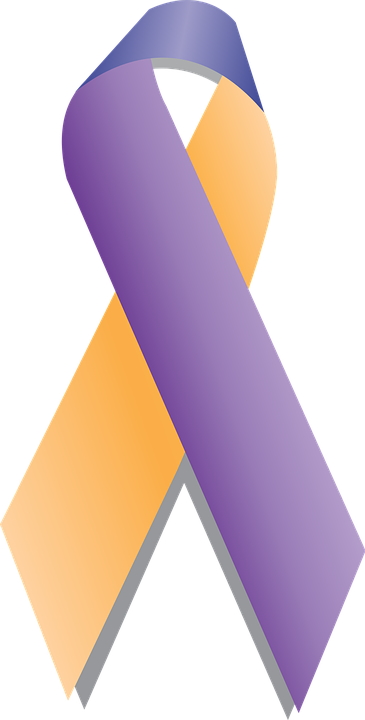
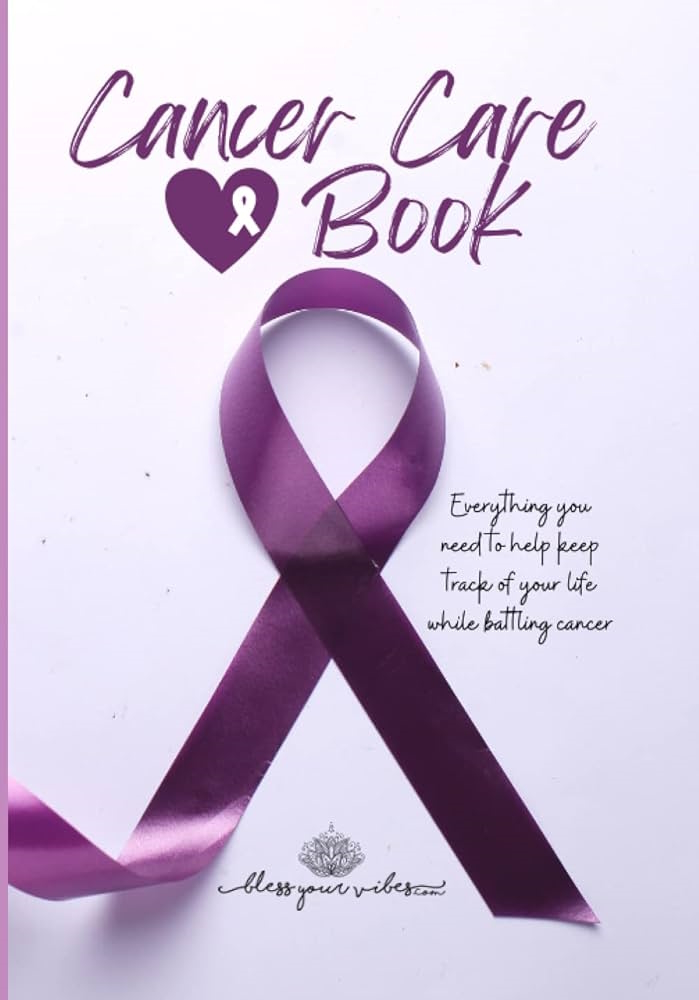
Publishing a Cancer Care Book
When I was first diagnosed, there were different things that I had to keep track of. I had a little notebook where I was writing everything down on because I couldn’t keep track of everything, especially once I moved. I had to get new doctors, new patient portals, and new insurance. There was too much for me to keep track of. I found a group and talked to other people about it.
I’m a graphic designer by profession, so I thought about making a book for other people and created a guided journal called Cancer Care Book, which is available on Amazon (no commission is being earned with this link). It’s geared toward women, but men could use it too. It’s for anybody who has cancer but specifically for newly diagnosed people.
There are different sections in it where you can keep track of all your appointments and bills, write things out like a journal, or if you’re an artist, you can draw or doodle. There are coloring pages because I’m a big believer in art therapy.
There’s a section called The Tough Stuff where you can organize your bucket list items and final wishes. They may deny it, but everybody will think about what happens if they die and this is the perfect way. Nobody has to see this if you don’t want to.
If you get so sick and have a caretaker, you can keep track of all the information, like medication, and hand it off to a caretaker. There’s an emergency contact list on the first page, so if something happens to you, people will know who to reach out to. I put everything that I thought I would want when I was first diagnosed.
You can’t take care of anybody else if you don’t take care of yourself first.
Words of Advice
I made a video that showed six things that are key to your survival and the biggest one is early detection. Don’t wait. If you have any kind of symptom or you feel like something is wrong with your body, get it checked out. Don’t put it off. Early detection is key.
Advocate for yourself no matter what. Get those answers and get education.
Find your tribe. Find your support. They’re out there. On my website, I have a Resources page with over 500 websites for all cancers.
Take care of yourself because much like when you’re flying on a plane and they tell you to put the oxygen mask on first, you can’t take care of anybody else if you don’t take care of yourself first.
Anyone who has had a cancer diagnosis needs to get some kind of mental health care to process everything. You can find a lot of help in support groups and support centers, but they’re limited and can only help you so much. If you’ve never seen a counselor or a therapist before, once you get a diagnosis, they should be next on your list of doctors to see.
You have to come to terms with your mortality. A lot of people think they’re going to live forever. You have to shift your thinking. Cancer could take you out, a car accident could take you out, or a fire could take you out. Anything could happen. You need to reevaluate your life and make better choices of what’s important to you and your closest loved ones.
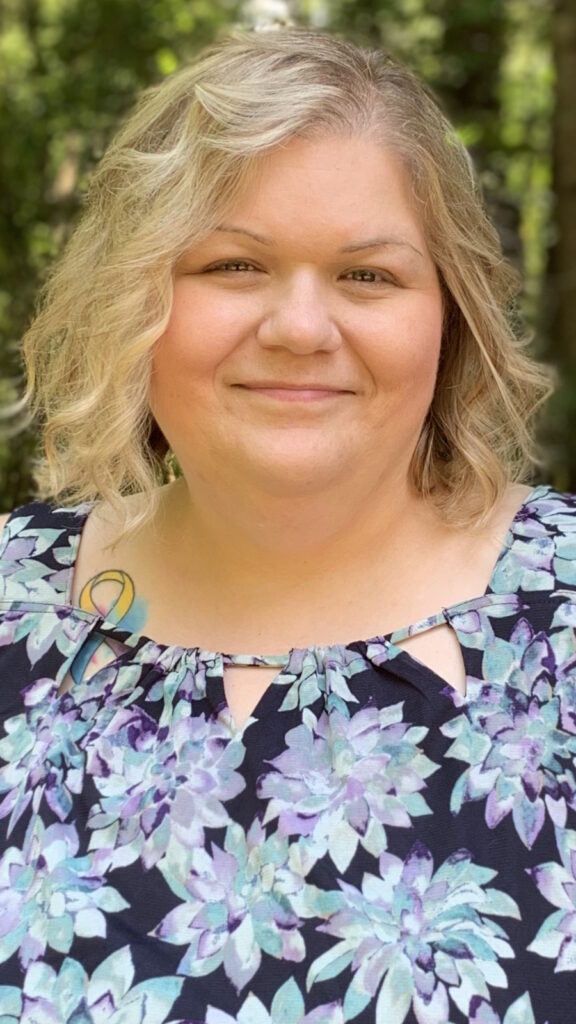

Special thanks again to Johnson & Johnson for its support of our independent patient education content. The Patient Story retains full editorial control.

Inspired by Michelle's story?
Share your story, too!
More Bladder Cancer Stories
Laurent Gemenick, Bladder Cancer
Symptom: Presence of blood in urine
Treatment: Surgery: transurethral resection of bladder tumor or TURBT
Jon T., Locally Advanced Muscle-Invasive Bladder Cancer
Symptom: Darkening urine, blood in urine, dull right flank pain
Treatments: Surgery(transurethral resection of bladder tumor or TURBT), antibody-drug conjugate, chemotherapy
Michael V., Bladder Cancer (Non-Invasive High-Grade Papillary Urothelial Carcinoma), Stage 1
Symptoms: Frequent urination, burning sensation when urinating
Treatments: Surgery (transurethral resection of bladder tumor or TURBT), immunotherapy (Bacillus Calmette-Guérin or BCG treatment)
Dorinda G., Bladder Cancer
Symptom: A significant amount of blood in the urine
Treatments: Surgery (transurethral resection of bladder tumor/TURBT, surgery for papillary lesion), immunotherapy (BCG), chemotherapy
Healing Together: A Mother and Daughter Navigate High-Grade Bladder Cancer
Mary Beth’s story about caregiving starts with an important awareness message about female bladder cancer symptoms.
Danny G., Non-Muscle Invasive Bladder Cancer
Symptoms: Fatigue, back pain, erectile dysfunction, nausea
Treatments: Surgery (transurethral resection of bladder tumor or TURBT), chemotherapy, immunotherapy
